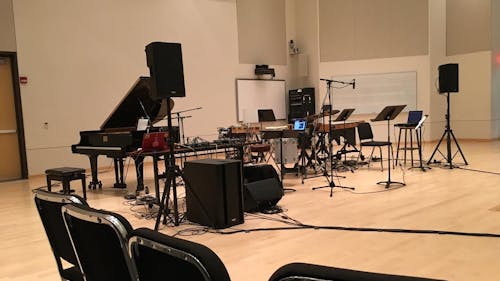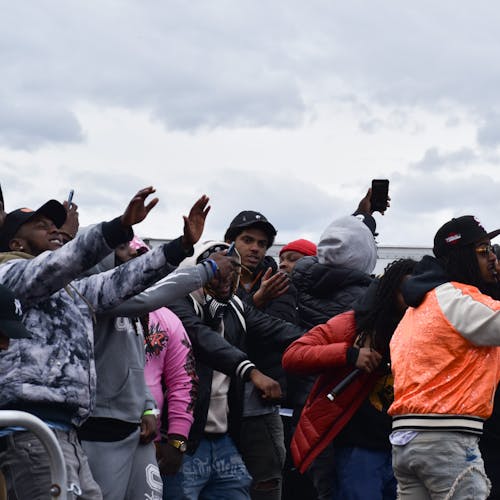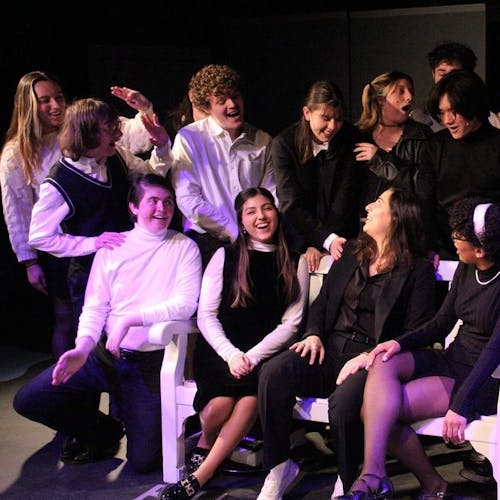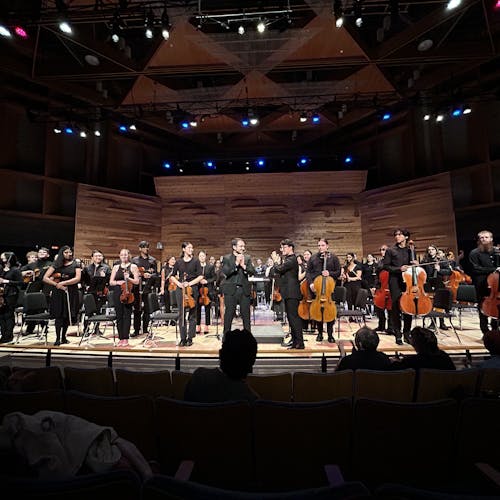What does a Rutgers concert without instruments or singers sound like?

Have you ever been to a concert where the laptop was the only performer? What about a concert where there were no lyrics, just rhythms? On Sunday, Oct. 1, in the Performing Arts Center's Shindell Choral Hall, was a night of computer-based music presented by Rutgers students, faculty and guests.
The New Jersey Digital Audio Concert (NJDAC) featured performances by many different artists and created an air of intrigue around this unique show in addition to a peaceful mood. There was a sense of calmness throughout the Choral Hall while we listened to each composition. Each artist had their own unique touch in their work, which carried throughout their songs.
Many people at home listen to music from their phones or use the radio, forgetting that most of the music they listen to is created by electricity. One artist was Jack Impink, a Rutgers alumnus who graduated in 2017 with a degree in philosophy, who now composes work primarily in the field of electronic music.
“When I went to college, I was exposed to Dr. Kemper’s music and a lot of experimental stuff, and what I realized was that I really wanted to reconcile those two worlds. I wanted to take dance and experimental music together and show how they are powered by electricity. That is the root of everything,” he said. “The name of my piece is called 'Ouroboros' because it is the snake eating its own tail, because everything comes from this one root.”
The equipment that comes with this music genre is one of the most fascinating elements of its creation. Impink's process includes devices such as an Electron Machine Drum, a Future Retro Revolution, a lamp and Max MSP software.
“I love to write for a sound, an attitude or a mindset. This program teaches you how to expand your boundaries," Impink said. "If you try this program here at Rutgers, you will find your scene, and that is the best decision I ever made.”
Digital audio technology is not limited to those who do not have the equipment. Leah Pesenson, a Mason Gross School of the Arts sophomore, was another artist who stood out at the show.
“I made my song 'Time' on my phone for a school project," said Pesenson, who studies music education in piano with an instrumental concentration. "I do not have any professional microphones on hand, so I recorded it on the memo recorder app. Then I transferred those files to GarageBand, it was very laborious. But all the clips, sounds and music were created on my phone."
Pesenson is proof that people do not need expensive interfaces to produce a great quality sound. That is one of the perks of digital music. Anyone can pursue this type of genre, all they need is inspiration and a way to access software, whether that be on a phone or computer.
Another aspiring musician was Becky Turro, a Mason Gross School of the Arts junior. Her song "Encompass" was “composed for voice and electronics" and featured a recording of herself reading poetry with her voice altered in editing.
Turro’s inspiration comes from her close friends that continually support her. She mentioned that she is working on a bigger project that involves several songs. Each song is dedicated to a specific friend.
“I am really inspired by folk music, so I like to use that sound including pentatonic stuff. I also like Joni Mitchell, including classical music because I have been playing for a very long time," she said. "I used Logic Pro X, but anyone can do this if they are passionate about it.”



